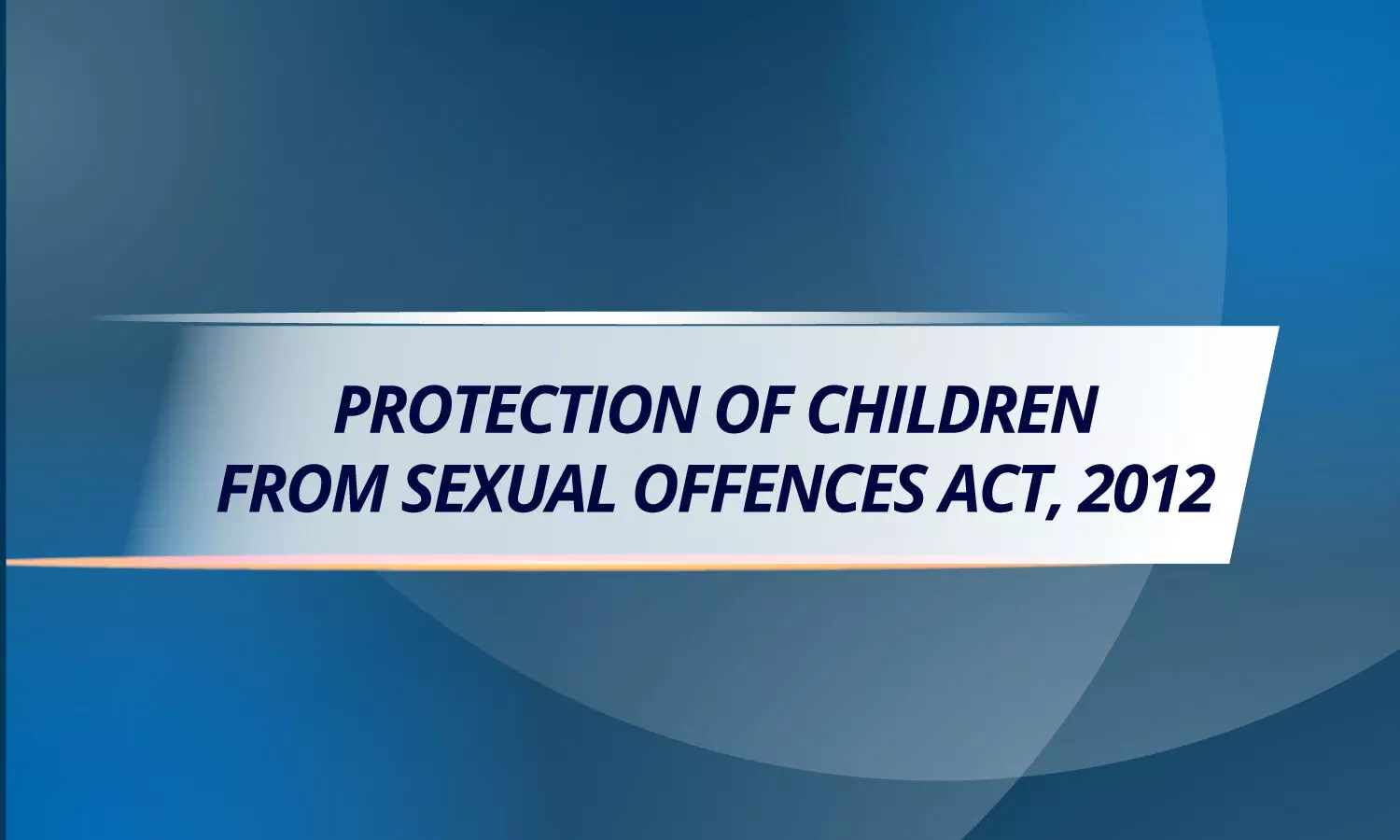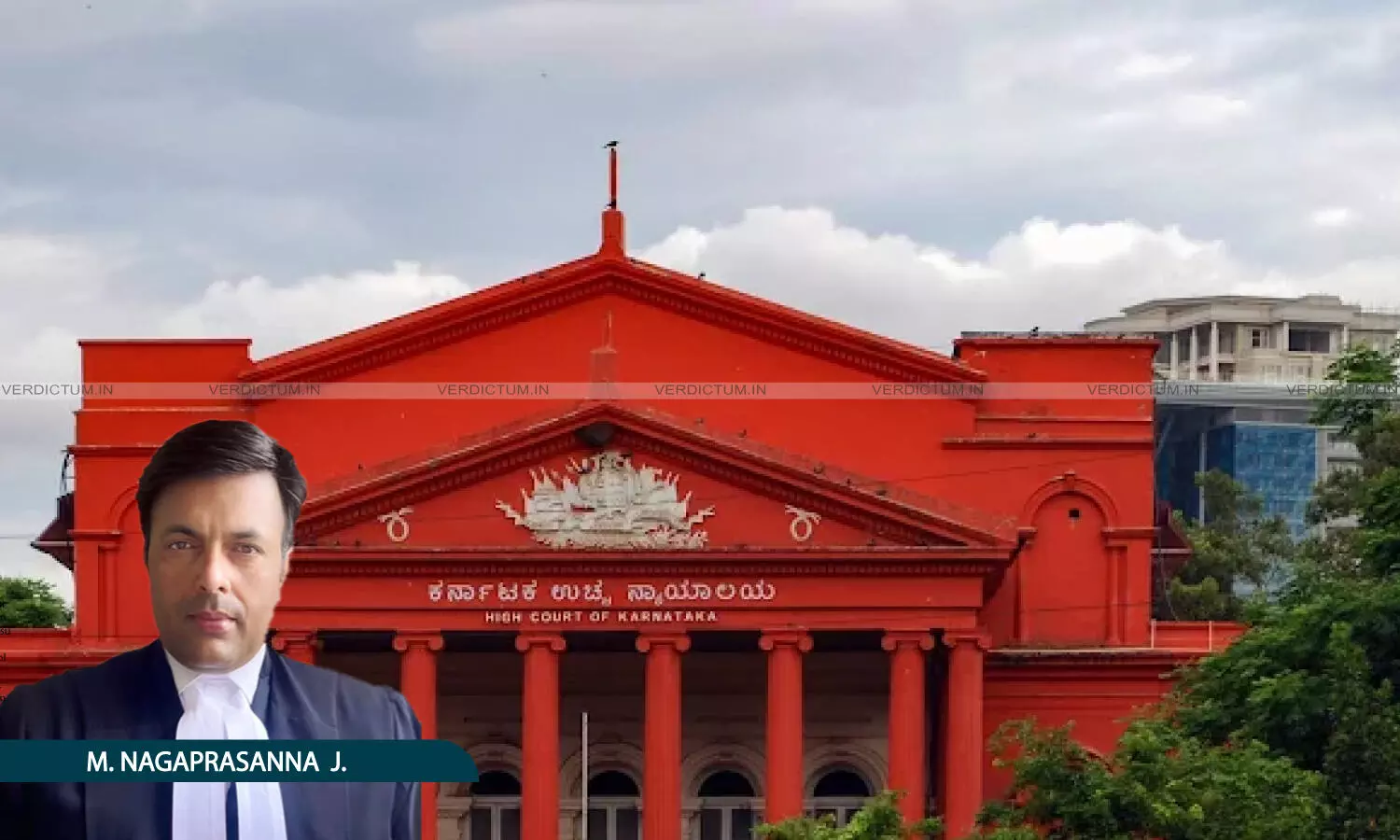
POCSO Act, 2012
Penetrative Sexual Assault Offence Under "Gender Neutral" POCSO Act Can Attract Against Women Also: Karnataka High Court
 |
|The Karnataka High Court held that the POCSO Act, being a progressive enactment, is intended to safeguard the sanctity of childhood and it is rooted in gendral neutrality with its beneficient object being the protection of all children, irrespective of sex.
The Karnataka High Court has refused to quash a case against a 52-year-old female artist who has been accused of sexually assaulting a 13-year-old boy who lived in her neighbourhood.
The Court held that the offence of penetrative sexual assault is equally applicable to women under the Protection of Children from Sexual Offences Act, 2012 (POCSO Act).
A Single Bench of Justice M. Nagaprasanna observed, “Sections 3 and 5 which form the foundation for offences under Sections 4 and 6 of the Act, delineate various forms of assault. Although certain provisions may employ gendered pronouns, the preamble and purpose of the Act, render such usage inclusive. Therefore, it is inclusive of both male and female. … The ingredients of Section 4 of the Act dealing with penetrative sexual assault are equally applicable to both men and women. The language of the provision clearly indicates inclusivity.”
The Bench also held that the POCSO Act, being a progressive enactment, is intended to safeguard the sanctity of childhood and it is rooted in gendral neutrality with its beneficient object being the protection of all children, irrespective of sex.
“The Act is thus, gender neutral”, it ruled.
Senior Advocate Hashmath Pasha appeared on behalf of the Petitioner while Additional State Public Prosecutor (Addl. SPP) B.N. Jagadeesha and Advocate G.V. Ashok appeared on behalf of the Respondents.

Factual Background
As per the prosecution case, the Respondent-Complainant with her husband and two children including the victim boy, were residing in a rented villa of Adharsh Vista, a community living at Doddanekundi, Bangalore since 2020. The Petitioner-accused was residing at the said place since 22 years. The bond of neighbourly warmth blossomed between the Complainant’s family and the accused, who was reputedly an accomplished Artist, offering Art lessons to the children of the community. The children drawn by the lure of colors and creativity, frequently visited the house of the accused, so did the victim. The victim allegedly developed an affinity that deepened into frequent exchanges of messages and numerous visits. The Complainant and the family decided to settle down in Dubai and hence, vacated the villa. They continued to stay in Dubai for 4 years after the examination of the victim, they returned back to India.
A Complaint of sexual abuse was registered against the accused alleging that the victim throughout the 4 years in Dubai was not active and had psychological changes in him. Allegedly, when the mother confronted the son, the victim boy confessed that the accused had called him to her house for four or five months on a continuous basis, between February and June 2020 and the conversation initially began and led to downloading some art pictures on Instagram. It was further alleged that the accused had then taken him to her bedroom, unrobed herself and also the victim and asked the boy to commit the act of intercourse on her. It was also alleged that thereafter, she sent him threatening, that if he would reveal anything to anybody, it would be dangerous to both of them. Allegedly, he was again sexually abused by her. Hence, the case was registered against the accused and challenging the legality of proceedings before the Trial Court, she approached the High Court.
Court’s Observations
(i) Whether POCSO Act is gender neutral?
The High Court in view of the facts and circumstances of the case, noted, “Children would include boys and girls who are minors i.e., below 18 years. The Act does not mandate protection, only for girls. The children who are boys, and boys who are below 18 years, do have the same protection, as obtaining for girls below 18 years. There was some ambiguity with regard to its interpretation, qua both boys and girls, atleast in the objects and reasons. Then comes the Amending Act of 2019, with clarificatory objections and reasons.”
The Court said that the intention of the legislature is to provide protection to children from sexual offences, which was regardless whether the offence is committed upon a child, by a man or a woman and thus, the law, in both text and tenor, extends its sheltering canopy to every child, unfettered by gender, class or circumstance.
“In its essence the Act qua the objects and reasons, both in its original form of 2012 and as fortified in 2019 stands as a testament to such interpretation. Thus, when read holistically, through its objects, amendments and judicial interpretation, the Act emerges as a legislation that is profoundly inclusive in its embrace, it does not differentiate genderwise. Therefore, there can be no shadow of a doubt, that the Act is Gender Neutral. The issue is accordingly answered”, it observed.
(ii) Can offences under Sections 4 and 6 of POCSO Act be alleged against a woman?
The Court explained that the statute is comprehensive, designed to encompass acts committed by any person, male or female and the gender of the perpetrator is immaterial.
“What matters is the act and the involvement of the child”, it added.
The Court was of the view that the two provisions in Section 5 which form two among various ingredients of Section 6 punishes a person whoever being in the position of trust or authority and repeatedly commits penetrative sexual assault.
“If the findings rendered in answer to Issue No.1 are paraphased to issue No.2, the offence need not be committed only by a male on a female, it can be other way round. In the light of the aforesaid explanation, the unmistakable inference, in the considered view of this Court, is that the offences under Section 4 and 6 of the Act can undoubtedly be brought against a woman. The issue is accordingly answered”, it further held.
(iii) Whether the ingredients of Sections 4 and 6 of the Act are met in the case at hand?
The Court took note of the fact that the mother recounts with a heavy heart that though the harrowing incident transpired in the year 2020, it did not fall upon the family’s knowledge until 2024, when they were residing in the UAE.
“When the son gently guided through a course of intensive therapy and psychotropic counseling at Dubai, began the narration long and painful journey. The entire narration is made by the child. In the light of those deeply compelling circumstances, the complaint is registered”, it said.
The Court remarked that the boy in question may not have performed the act of penetration on his own volition.
“The allegation is that the act, woman manipulated or induced the child to penetrate her, this is a circumstance that falls squarely within the ambit of the words in the statute “make the child to do so with her or any other person”. Therefore, this court is of the firm and reasoned opinion that all statutory ingredients of offence under Section 3 stand fulfilled in the present case”, it also observed.
The Court held that the ingredients of the offence are clearly met in the case at hand for an allegation under Sections 4 and 6 of the Act against the Petitioner.
“It is matter of public record as supported by empirical data that 54.4% of children reporting sexual assault are boys while 45.6% are girls. This statistical reality underscores a critical truth that sexual violence is not confined to one gender”, it noted.
The Court remarked that even boys and men are victims of sexual assault at the hands of either the person of the same gender or of the opposite gender.
(iv) Whether delay in registration of the crime, has vitiated the entire proceedings?
Furthermore, the Court elucidated, “… delay in lodging the FIR, in cases of sexual assault concerning a child, cannot be equated with the case involving other offences. There are several factors which weigh in the mind of the victim and the family members before walking to the police station, to lodge a complaint.”
It, therefore, held that the delay has not and cannot, in the peculiar facts of the case, lead to obliteration of the proceedings.
(v) Whether non-conduct of a potency test of the victim has vitiated the entire proceedings?
The Court rejected the argument of the senior counsel that in a sexual intercourse the male is ever an active agent and the woman forever is a passive recipient.
“Such a view, steeped in antiquated stereotypes finds no foothold in the present day and is therefore, noted only to be rejected, as the law acknowledges applicability to both man and woman. An intertwined submission is made that in a state of shock there would be no erection, and if there is no erection, there can be no penetration. This submission is noted only to be rejected. State of shock is a psychological concept”, it said.
The Court observed that erection is purely a physiological or a biological concept and psychological concepts would not sometimes control physiological and biological actions.
“The case stands cloaked in disputed questions of fact, where the offences alleged strike at the core of penetrative and aggrevated penetrative sexual assault, such proceedings cannot be erased with a mere stroke of pen. The trial, in such cases, is not a perfunctory ritual, but imperative necessity. It is for the petitioner to come out clean in its full-blown form”, it said.
The Court held that the submission of the senior counsel, that when in fear there cannot be erection and when there cannot be erection, there cannot be penetration, is sans countenance.
Conclusion
The Court, therefore, concluded the following points –
• The ingredients of the offences, the ones punishable under Sections 4 and 6 of the Act, are clearly met in the case at hand.
• Delay in registration of the crime, in the case at hand, cannot become the reason for quashment of the proceedings, owing to the alleged offence and the age of the victim.
• The submissions of psychological impossibility and absence of potency testing, fall flat in the light of modern jurisprudence, noted hereinabove.
• The submission that psychological trauma cannot result in an erection would tumble down, in the light of several studies, that psychological trauma does not always prelude physiological or biological reactions, especially ones of coercion and fear.
• The submission that, in an intercourse the woman is only a passive participant and a man is an active participant is noted only to be emphatically rejected, as the thought itself is archaic. The jurisprudence of the present times embraces the livid realities of victims and does not allow stereotypes to cloud legal scrutiny.
Accordingly, the High Court rejected the Criminal Petition and refused to quash the proceedings against the accused.
Cause Title- Archana Patil v. State of Karnataka & Anr. (Case Number: CRIMINAL PETITION No.12777 OF 2024)
Appearance:
Petitioner: Senior Advocate Hashmath Pasha and Advocate Kariappa N.A.
Respondents: Addl. SPP B.N. Jagadeesha, Advocates G.V. Ashok, and Monika H.B.